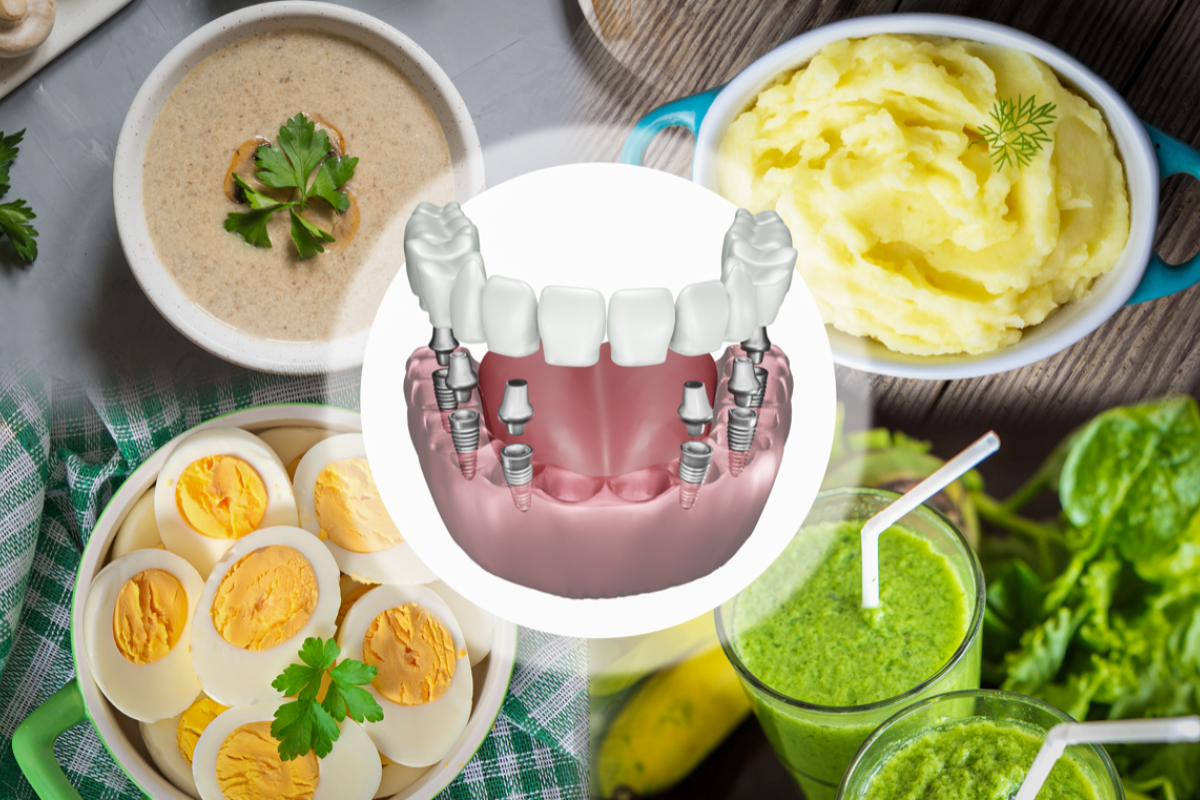
Recovery from dental implant surgery requires more than rest and oral hygiene; it also requires a thoughtful approach to your diet. The proper foods can go a long way toward facilitating healing and reducing discomfort in the initial days and weeks after surgery. A well-planned post-surgery diet plays a crucial role in ensuring implant success and maintaining overall oral health.
Following the procedure, your dentist in SW Calgary will provide post-operative care instructions, including dietary guidelines. These recommendations are meant to protect the implant site, prevent irritation, and accelerate the healing process. It’s also important to follow them strictly, especially in the first few days when the surgical site is most tender.
For patients receiving dental implants in SW Calgary, being aware of what to eat and what not to eat is extremely important for comfortable recovery and long-term success. While your implant area heals and osseointegration occurs (the bonding of bone and implant), you need to prioritize gentle, nourishing foods.
Why Diet Matters After Implant Surgery
Eating after dental implant surgery should be approached with care. The mouth is in a delicate state post-surgery, and chewing hard or crunchy foods can interfere with healing or cause discomfort. A well-balanced diet not only keeps your energy level up but also supports the repairing of tissue repair and minimizes the risk of infection.
Key goals of your diet following recovery are
- Prevention of mechanical stress on the site of the implant
- Maintenance of a check on inflammation with good food
- Boosting immune status for the prevention of complications
The first 48 to 72 hours are extremely important. During this time, patients should consume liquids and soft foods that require minimal chewing.
Recommended Soft Foods After Dental Implants
To ease discomfort and promote healing, stick to a soft diet during the first week post-surgery. As healing progresses, you can gradually reintroduce more solid textures under the supervision of a dentist near you in SouthWest Region of Calgary.
Some good soft foods following dental implants:
- Mashed potatoes or sweet potatoes
- Scrambled eggs or omelets
- Greek yogurt
- Fruit smoothies (seedless)
- Oatmeal, cream of wheat, or pureed porridge
- Mashed bananas or applesauce
- Soft tofu or steamed vegetables
- Broths, pureed soups, and bone broth for collagen boost
- Cottage cheese or soft cheeses
All these foods are soft on the surgical site, simple to swallow, and contain vital nutrients to repair tissue.
Healing Foods For Dental Implant Recovery
Adding healing foods to recover from dental implants is a game-saver. Attempt to have several soft yet nutrient-dense foods that have:
- Protein: For repairing cells. Scrambled eggs, soft fish, and shakes with protein are a few examples.
- Vitamin C: Encourages the healing of gums. Add mashed fruits such as bananas or citrus smoothies without pulp.
- Calcium and Vitamin D: Maintains bone density and implant stability. Blend milk or fortified milk substitutes.
- Zinc and Iron: Maintain immune function. Soft legumes, lentil soup, or pureed beans all work well.
Prioritizing nutrition for dental healing not only hastens recovery but also guarantees optimal overall success of your dental implant. Hydration is equally important. Drinking lots of water rinses the mouth, aids in metabolism, and prevents dry mouth that can hamper healing.
What Not to Eat After Dental Implants?
An awareness of what not to eat post-dental implants is also important. Some foods irritate the surgical site or hinder healing. These need to be avoided for at least two weeks or until your dentist provides an alternative:
- Hard or crunchy foods: Nuts, raw vegetables, chips, crusty bread
- Sticky foods: Caramel, toffee, gum
- Spicy or acidic foods: These tend to cause irritation or swelling further
- Very hot food or liquids: Can interfere with the clotting or the risk of bleeding
- Alcohol and carbonated beverages: Can impair healing or react with drugs
If you are not sure about a specific food, always best to check with your local dentist before returning it to your diet.
Tips For Eating Post-Dental Implant Surgery
To ensure a smoother recovery and support long-term implant success, keep the following practical tips in mind:
- Chew on the other side of your mouth, particularly in the early healing stage
- Eat slowly with small bites to minimize unnecessary pressure
- Use a spoon or soft utensils where needed to avoid touching the implant site
- Do not use a straw since suction may dislodge the healing blood clot
- Rinse gently with warm salt water after meals to maintain cleanliness (only if instructed)
Monitoring your progress and communicating with your care team will help identify when you’re ready to transition back to your regular diet.
Let Nutrition Be the Bridge Between Surgery And Strength – Cedarbrae Family Dental!
The choice of foods during your recovery may be the key to your healing and the success of your implant. A soft, well-balanced diet prevents pain, reduces the risk of complications, and helps in proper osseointegration.
To have personalized advice and professional attention from start to finish, book an appointment today at Cedarbrae Family Dental. Our staff are ready to ease your way through recovery and restore your smile with confidence and simplicity.
